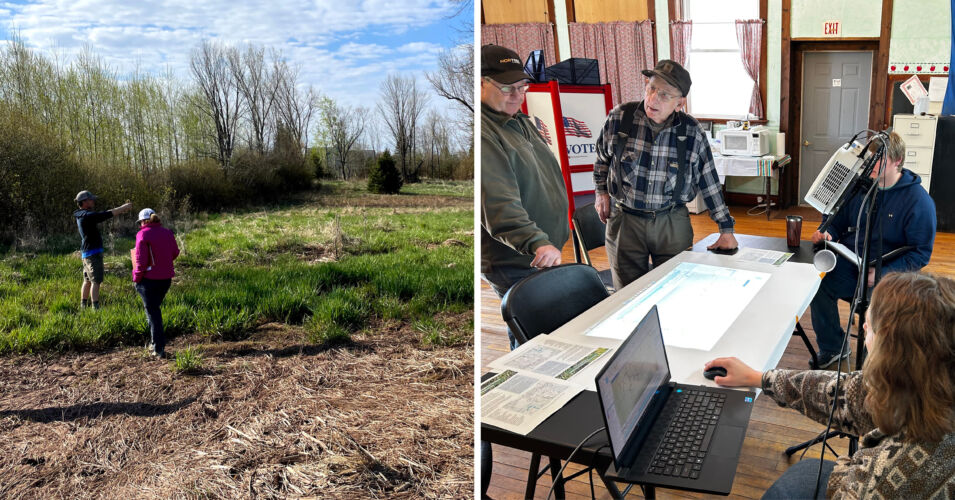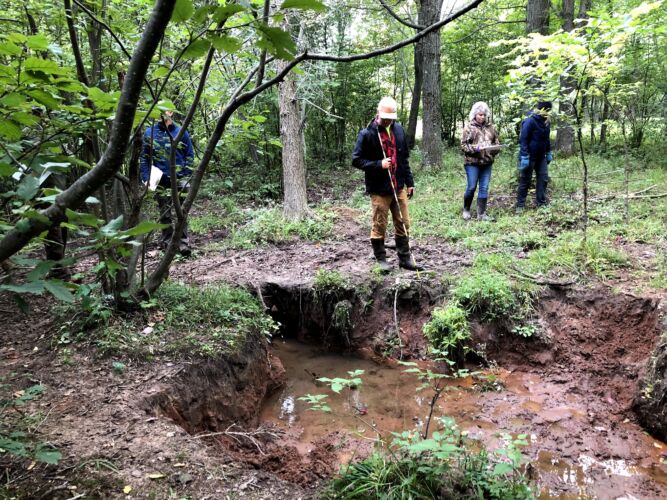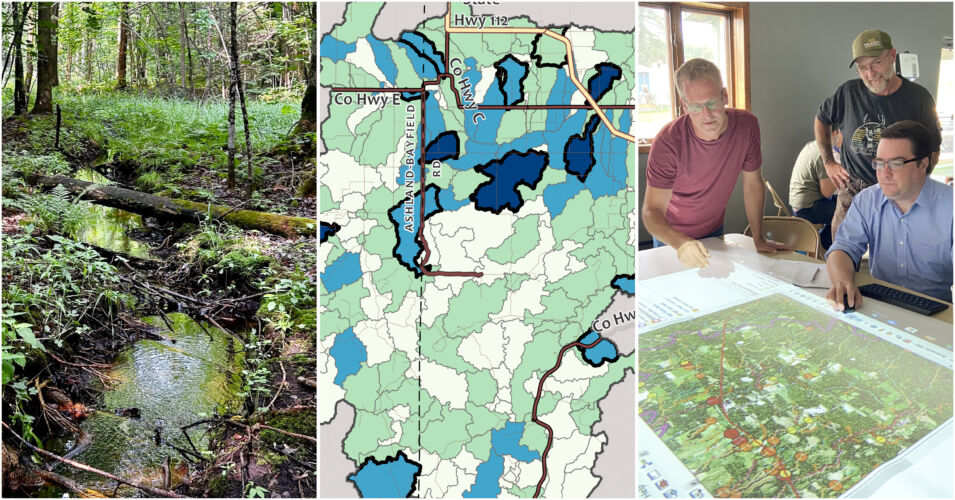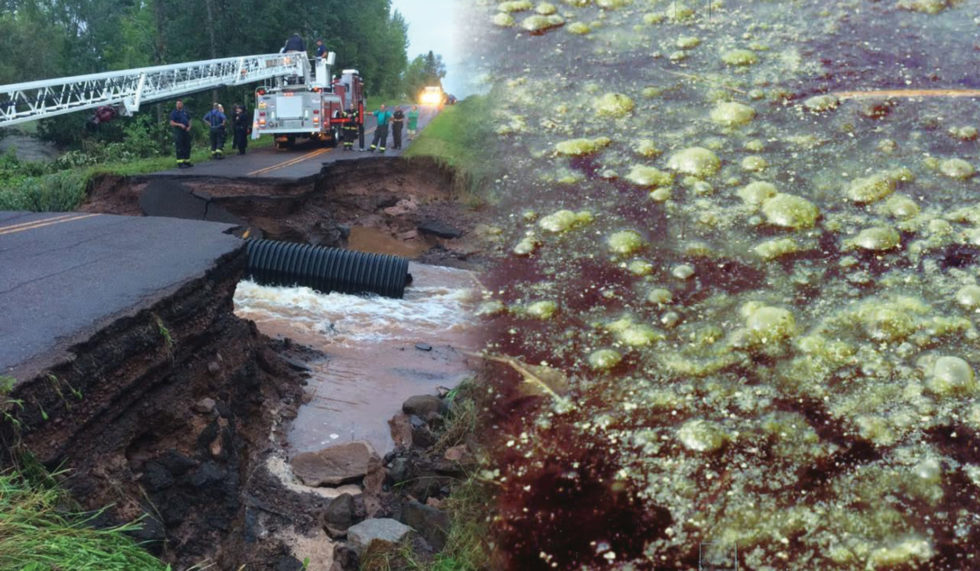$1.45 million awarded in highly competitive grant to increase climate resilience in flood-prone Lake Superior communities
Communities in the Lake Superior Basin suffering from the devastating effects of severe storms and climate change will receive support from a newly announced award. The Northwest Regional Planning Commission (NWRPC), Wisconsin Wetlands Association (WWA), and other Lake Superior Basin partners have been awarded $1.45 million over four years under the National Oceanic and Atmospheric Administration (NOAA) Climate Resilience Regional Challenge. The funding will help rural, underserved counties, towns, and Ojibwe Tribal Nations assess how the loss of headwater storage and floodplain connectivity contributes to flood risks and damages. As rainfall events increase in size and frequency, this funding will help these communities plan and implement nature-based solutions to reduce flood risks and be more climate resilient.
From 870 projects initially, this highly competitive award is one of just 19 projects funded in the country and the only funded project in Wisconsin. Kyle Magyera, Local Government Outreach Specialist at WWA, said, “This significant investment will help provide the critical data and tools needed to help more towns and tribes restore headwater wetlands and protect vulnerable roads, culverts, and bridges from flood waters.”
Involving a diverse group of partners from Wisconsin, Michigan, and Minnesota, this project builds on a multi-phased pilot project led by WWA in the Marengo River watershed. The project partners aim to establish a unified approach to assessing and addressing flood vulnerabilities across the Lake Superior Basin. Planned project activities include developing flood vulnerability data and screening tools, completing assessments in priority watersheds, and expanding and diversifying regional partnerships.
Road and culvert failures are the most common and costly flood-related impacts for the majority of local and tribal governments in the region. Small budgets and existing disaster support programs often can only support repairing infrastructure to pre-storm conditions instead of building back better. “This partnership with NOAA will greatly advance efforts to safeguard local economies from the consequences of climate change by minimizing risks to businesses and properties, protecting essential infrastructure, and ensuring the continuity of vital services and economic activities,” said Jason Laumann, Northwest Regional Planning Commission Deputy Director. With a strategic focus on restoring the natural hydrology in headwater wetlands and floodplains, the project activities will help build local capacity and increase investments in projects that prioritize long-lasting, nature-based solutions to downstream infrastructure risks.
Project Title: Accelerating Natural Flood Management in the Lake Superior Basin
To ensure the project increases local capacity in underserved communities and strengthens flood resilience partnerships, the project will benefit from the collaboration of more than 20 partners and advisors. In addition to NWRPC and WWA, organizations collaborating as funded partners include Superior Rivers Watershed Association, Trout Unlimited – Great Lakes Program, Great Lakes Indian Fish & Wildlife Commission, Lake Superior National Estuarine Research Reserve, and Superior Watershed Partnership & Land Conservancy.
Related content
Wetlands and flood damages: Understanding the connections
Making strides and mapping restoration opportunities
Our legacy of wetland loss: Behind our water problems




